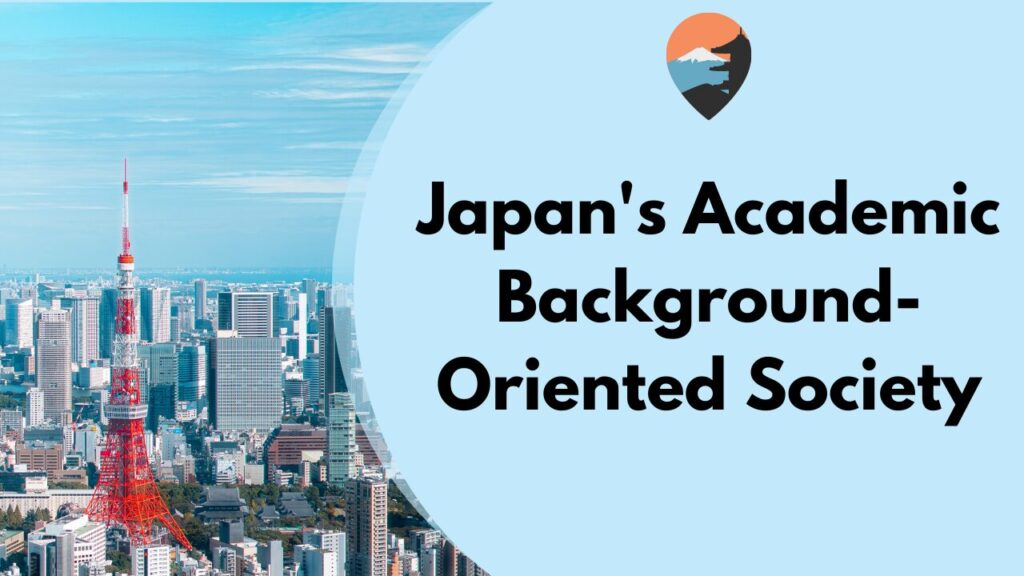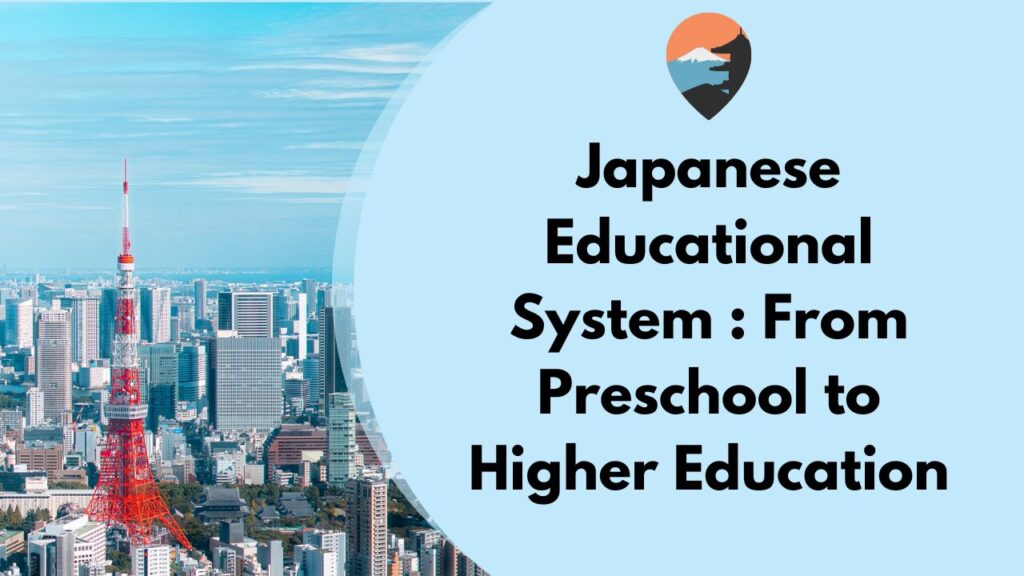Japan is known as an academic background-oriented society, where the value of academic credentials is considered very high. This article will discuss the circumstances, background, and changes in Japan’s academic background-oriented society. By understanding its characteristics and challenges of it, you will be able to think deeply about the Japanese education system and the role of academic background within society.
The academic background situation in Japan

In Japan, it is common for educational background to have a significant impact on social status and employment choices. Having a high academic background is expected to increase one’s chances of getting a job or promotion in a company. Competition for entrance examinations is intensifying, with many students aiming for the most difficult universities to enter. In addition, the tendency to place a high value on academic credentials is widespread among families and society at large.
Is Japan an academic hierarchy society?
Japan is generally regarded as an academic hierarchy society. Since academic background has a significant impact on social reputation and economic success, many people tend to pursue academic degrees. On the other hand, an increasing number of companies and forms of employment are now emphasizing ability and experience as well as academic background. Although there is an aspect of an education-oriented society, it can be said that this is gradually changing.
Many companies set a target university when hiring. Large scale companies check it in order to make their recruitment process efficient. It is noteworthy that even small and medium-sized companies with fewer than 300 employees set a target university. Small and medium-sized companies are necessary to hire carefully because it is difficult to attract talented people.
Although many people say “the academic background society has collapsed” and “the emphasis on academic background will disappear,” the culture of the academic background society is still deeply rooted in Japan. Especially in job hunting, it is easy to feel the academic hierarchy of society.
About academic background filter

The term “academic background filter” is often used by companies when looking at students seeking employment. This “academic background filter” is a system whereby companies sort students who apply to their company by the school they have attended in advance, so that only students from specific universities can be accepted at recruitment information sessions, etc.
For example, a company may reject an application because “we are already full,” but only accept students from specific universities.
Background of academic background-oriented society

Academic background-oriented society began in the Meiji Era
A feudal society, with its fixed status system, was not yet an academic background-oriented society. It was a society of status, where people were evaluated based on their social status, economic position, and family background, regardless of their abilities. With the Meiji Restoration, Japan aimed to become a modern nation, and educational reforms were implemented to create a capitalist society. At this time, those with high academic credentials were paid extremely high wages, giving birth to a society of educated people.
Academic background-oriented society prevailed after the war ended
It was not until the postwar period that the academic background-oriented society spread to the general society. The school system became more linear than it was before the war, with elementary school, junior high school, high school, and university all connected in a straight line, making it possible for everyone to have a chance to pursue education up to university level. The combination of these factors led many people to pursue university education, creating a society that places great faith in academic credentials, accompanied by fierce competition for entrance examinations.
In addition, the combination of the fact that it is now possible for anyone to have a chance to attend college, the fact that national income has increased and people can afford to pay for education due to the phenomenal rapid economic growth achieved, and the fact that disparities based on educational background have become widespread throughout the nation, has led to a trend toward greater emphasis on academic credentials.
As a result, the “academic background filter” mentioned above, where companies sort people by the school they attended as the main criterion for hiring, was implemented without any sense of discomfort and continues to be so to this day.
In a sense, it has become something of a tradition in modern Japan, and the situation remains unchanged, with no easy way to spread a hiring system that does not ask where you went to school.
Changes in academic background-oriented society

In recent years, there has been a change in the education system. Some companies are hiring and promoting people based not only on their academic background, but also on their work experience and abilities. Additionally, an increasing number of people are choosing to work regardless of their educational background in order to start their own businesses or achieve self-fulfillment. Furthermore, the educational system and employment patterns are being reformed, leading to a shift toward a society that requires people with diverse abilities, not just academic backgrounds.
As the population of young people declines, companies are desperate to attract talented students who can play an active role in their companies in the future. As a result, companies are transitioning from the role of selecting job hunters to being selected by job hunters.
Comparison with other countries
Although academic background does have an impact on employment in Japan, compared to the rest of the world, Japan is actually not such a hyper-educated society.
Many international organizations, including the United Nations, specify at the hiring stage that applicants must have a master’s degree or higher. Many large European companies also recruit with the assumption that you have a master’s degree.
Even if you graduate from a well-known Japanese university, in many cases, the name of the university is not even recognized, and you will not be hired with an undergraduate degree. In other words, they are much more ” academic-oriented” than in Japan.
The knowledge and abilities tested in Japanese university entrance exams have little value in the global marketplace unless they are converted to a global index. The name recognition and prestige of the Japanese universities will certainly be an advantage in the job market after graduation in Japan, however, these are not applicable in the global labor market. Although it is happening slowly, Japanese society is also changing its hiring system to one that is more accepting of diversity.
Summary
Japan is considered an academic background-oriented society, and while academic background has a significant impact on social status and employment, recently, factors other than academic background tend to be evaluated as well. Behind the academic background of the society is the postwar period of rapid economic growth and a social structure that emphasized large corporations. However, recent changes have led to a trend toward placing greater emphasis on ability and experience, as well as the diversification of work styles. Although the pros and cons of an academic background society and its impact are debatable, society as a whole needs to create an environment that makes the most of diverse human resources.
For those who want to know more about Japanese education
Shin Edupower provides programs that enable online exchange and collaboration between schools in India and Japan, as well as study tours to Japan for educators and students. If you would like to know more about education in Japan, please feel free to contact us here.



